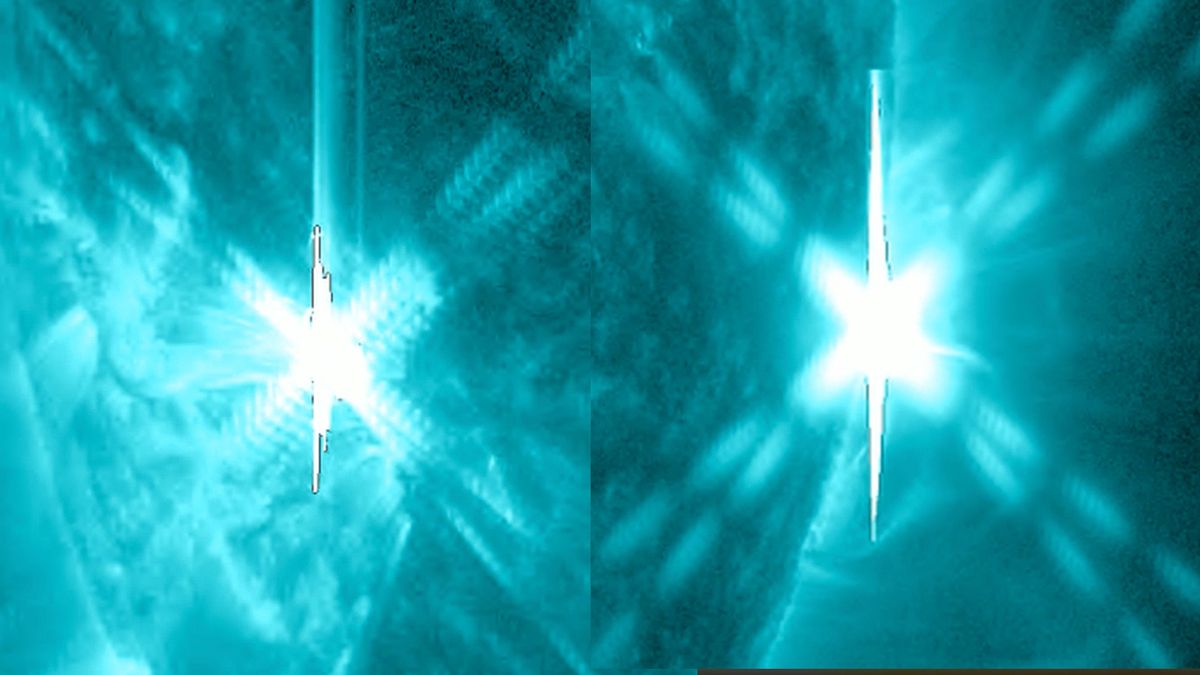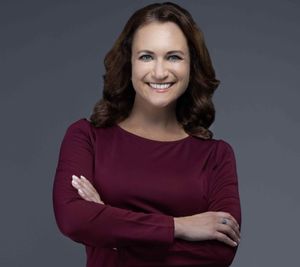Sun fires off double-barreled X-class flares in span of 2 hours
Solar activity is expected to remain high this week.

Get the world’s most fascinating discoveries delivered straight to your inbox.
You are now subscribed
Your newsletter sign-up was successful
Want to add more newsletters?
Join the club
Get full access to premium articles, exclusive features and a growing list of member rewards.
The sun showcased its immense power yet again this morning (August 5), firing off not one but two X-class flares.
X flares are the strongest solar flare class. Today's first X blast, which launched from a sunspot called AR3767, reached its peak around 9:40 a.m. EDT (1340 GMT), clocking in at X1.7 on solar scientists' flare scale. Then, less than two hours later, the sunspot AR3780 fired off an X1.1 class solar flare, which peaked at 11:27 a.m. EDT (1527 GMT).
Solar flares are often accompanied by huge eruptions of solar plasma called coronal mass ejections (CMEs), which can cause geomagnetic storms if they hit Earth. These storms can have negative consequences, such as the disruption of power grids, but they can also supercharge the auroras, making these light shows more intense and extending them to lower latitudes than usual.
RELATED: Rare, mystery blasts from sun can devastate the ozone layer and spike radiation levels on Earth
That's exactly what happened this past weekend, as a G3 (strong) geomagnetic storm brought the northern lights into view across parts of the U.S. West Coast.
Based on the location of AR3767, however, direct impacts from a CME (if one did indeed launch along with today's first X flare) are unlikely, the U.S. National Oceanic and Atmospheric Administration's Space Weather Prediction Center (SWPC) shared on X today. Today's second flare is currently being investigated for any impacts as of this afternoon.
Wow! This #sllarstorm just got better and better for the west coast and for the southern hemisphere last night! https://t.co/7SNB0USCh7August 4, 2024
Through the middle of the week (Aug. 7), SWPC scientists forecast that the flare activity will persist from three active sunspots — AR3772, AR374 and AR3780 — as they parade across the sun from left to right, remaining visible in our view of the solar disk.
Get the world’s most fascinating discoveries delivered straight to your inbox.
Low-end geomagnetic storms also remain possible, but that could change, depending on how strong future solar storms are, and if any send CMEs in Earth's direction.
Join our Space Forums to keep talking space on the latest missions, night sky and more! And if you have a news tip, correction or comment, let us know at: community@space.com.
Originally posted on Space.com.

Meredith is a regional Murrow award-winning Certified Broadcast Meteorologist and science/space correspondent. She most recently was a Freelance Meteorologist for NY 1 in New York City & the 19 First Alert Weather Team in Cleveland. A self-described "Rocket Girl," Meredith's personal and professional work has also been recognized over the last decade. This includes the inaugural Valparaiso University Alumni Association First Decade Achievement Award, two special reports in News 12's Climate Special "Saving Our Shores" that won a Regional Edward R. Murrow Award, multiple Fair Media Council Folio & Press Club of Long Island awards for meteorology & reporting, and a Long Island Business News & NYC TV Week "40 Under 40" Award. Meredith's 15 year career includes a wide variety of experience across the US stemming from her internship at WGN-TV in Chicago. Meredith worked at local television stations in New York, Ohio, South Dakota, Florida, and California and nationally with WeatherNation. Meredith is also an accomplished reporter, producing weather and science stories. This includes rocket launches at Vandenberg Space Force Base and Cape Canaveral, in depth special reports and features on NOAA's GOES-R and JPSS satellite series, and coverage on some of NASA's biggest accomplishments. She's interviewed some of the top scientists and leaders of the space & science community, being selected as the only meteorologist to travel with the GOES-West satellite from Colorado to Florida in 2017 on the C-5M Super Galaxy. Meredith frequents as a panel moderator at the Space Symposium & Satellite Conference, has been a judge for the Space Foundation's Space Technology Hall of Fame & reoccurring moderator for Foundation for the Future. Meredith spends countless hours doing school, career, & motivational talks and podcasts to help encourage women pursuing STEM careers and inspire our future generations. She moderates panels, serves as emcee for events, & conducts interviews to further storytelling on space & science topics.
 Live Science Plus
Live Science Plus










